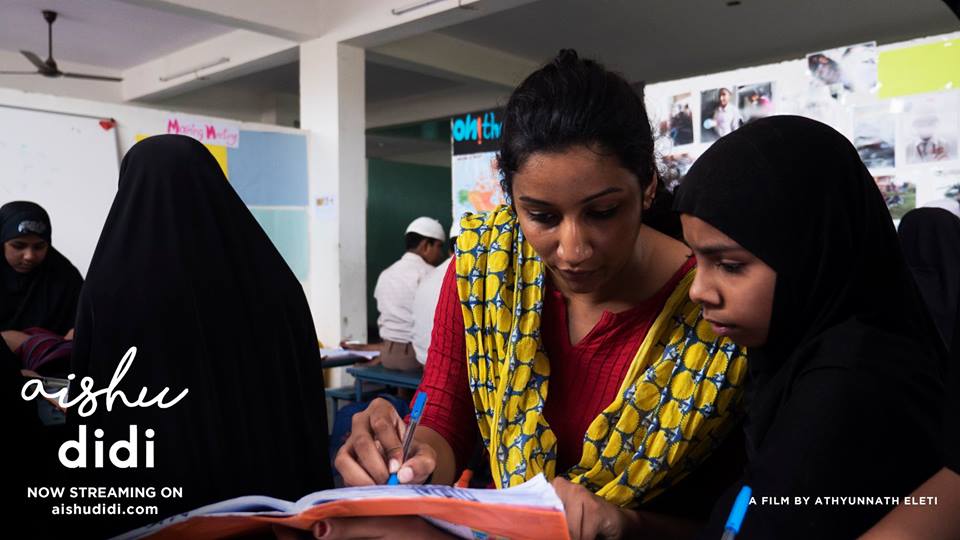
Documentary filmmaking is often emphasised to be the easiest form of filmmaking since apparently there’s nothing creative about it and it is entirely about showcasing the truth. But the argument that I would like to put forth is that it is, in fact, the most challenging form of filmmaking, for it is about showcasing the entire truth, no matter how harsh, upsetting and real it can be.
The director, producer, and cinematographer of Aishu Didi, Athyunnath Eleti, has a very delicate and real story to tell. It follows the life of Aishwarya Shetty, a teacher employed under the Teach for India fellowship, who is providing her students at an orthodox Muslim school with not just an education but also an exhibition of life.
A former student at Manipal Institute of Technology, Ms.Shetty’s tale is an inspiring and beautiful depiction of a young teacher’s will to change the lives of these children who’ve undergone hardship in various forms such as religious and gender discrimination, and domestic violence.
The film’s narrative begins with scenes from a mosque situated at Old City in Hyderabad, where the students perform their daily prayer. Soon after that inside their school, they greet their teacher with the word ‘didi’ instead of ‘teacher.’ This affectionate calling of a teacher as an elder sister shows a connection far deeper than the usual interactions that exist between educators and their students. It breaks barriers that withhold trust, something that is sorely needed by these children. And this is the crux of Eleti’s poignant introspection on this issue.
Education which is supposed to be an endless process has an abrupt conclusion for these children whose parents are still a part of the old paradigm of belief about their child’s future. Girls are brought up for marriage, and boys are brought up without inhibitions. And both undergo abuse, be it in physical or mental ways.
Eleti’s cinematography complements the personal narrative of the tale, providing a more immersive feel to the film. The soul-uplifting music composed by Jennifer Rowekamp and Paul Jacob Kneusel enriches the story’s setting and progression, rendering it beautiful in both the visual and audio medium.
This documentary attempts to raise pertinent questions that plague a considerable chunk of the Indian population and yet are conveniently ignored and veiled by lawmakers.
An earnest illustration of the depth of the human heart and its desire to foster freedom and happiness among the young spirits, Aishu Didi is heartwarming yet melancholy as it brings forth an important message. The plight that these children face is sadness that requires action. Change needs to happen, and it needs to happen fast.
The documentary can be viewed at Aishu Didi.
Written by Sanjay Kumar for MTTN
Leave a Reply
You must be logged in to post a comment.